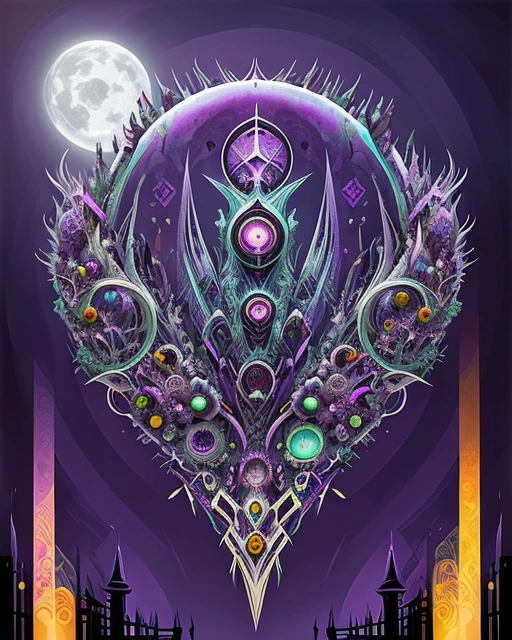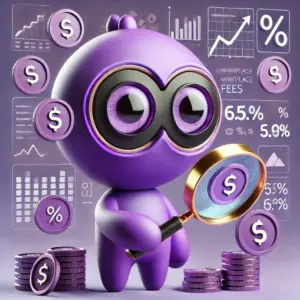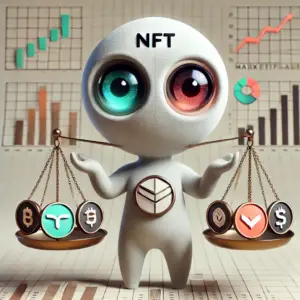In today’s digitally driven world, where information flows seamlessly across borders and ownership of intangible assets is becoming increasingly relevant, the concept of NFTs has emerged as a revolutionary force. Short for Non-Fungible Tokens, these unique digital assets have captured the attention of the tech-savvy and art enthusiast alike, promising a paradigm shift in the way we perceive and value digital ownership.
What Exactly Are NFTs?
To grasp the essence of NFTs, it’s crucial to understand the concept of fungibility. Fungible assets, such as currency or cryptocurrencies, are interchangeable, meaning one unit can be directly replaced by another without any distinction. In contrast, non-fungible assets, like artwork or collectibles, are unique and irreplaceable, embodying intrinsic value.
NFTs, by definition, are digital representations of unique assets, stored on a blockchain technology, a distributed ledger that maintains a tamper-proof record of transactions. This cryptographically secured method ensures the authenticity, provenance, and ownership of each NFT, preventing duplication or counterfeiting.
The Beauty of Blockchain-Powered Ownership
The integration of blockchain technology into the NFT domain has revolutionized the concept of digital ownership. Unlike traditional digital files, which can be easily copied and shared, NFTs possess a unique identifier that links them to the original creator and owner. This inherent traceability empowers NFT holders with exclusive ownership rights, allowing them to trade, gift, or resell their digital assets without compromising their authenticity.
NFT Applications: A Tapestry of Potential
The applications of NFTs extend far beyond the realm of digital art. They hold immense potential to transform various industries, including:
1. Art and Collectibles: NFTs have revolutionized the art world, allowing artists to monetize their work directly, circumventing traditional galleries and middlemen. Collectors can now invest in unique digital artworks, ensuring authenticity and provenance.
2. Music and Entertainment: NFTs are poised to disrupt the music industry, providing musicians with a direct channel to fans and enabling them to sell exclusive audio files, concert tickets, or behind-the-scenes experiences.
3. Sports and Gaming: NFTs are transforming the sports industry, allowing fans to collect and trade digital trading cards, jerseys, or even virtual game items. In gaming, NFTs are introducing new concepts of ownership and monetization, empowering players to trade in-game assets and earn rewards.
4. Fashion and Luxury Goods: Luxury brands are exploring the use of NFTs to authenticate and provide exclusive ownership rights to their products, creating a new level of brand engagement and customer loyalty.
5. Virtual Real Estate and Metaverse: NFTs are playing a pivotal role in the development of virtual worlds and metaverse platforms. Users can purchase and own virtual land, assets, and experiences, creating new economies and social interactions.
The Future of NFTs: A Realm of Endless Possibilities
As NFT technology continues to evolve, its potential applications are only expanding. From decentralized autonomous organizations (DAOs) that govern communities and manage assets to tokenized loyalty programs and personalized experiences, the possibilities are truly limitless.
The Rise of NFT Marketplaces: A Hub for Digital Trade
The emergence of NFTs has given rise to a thriving ecosystem of dedicated marketplaces, platforms that facilitate the creation, sale, and purchase of these digital assets. These marketplaces provide a centralized location for creators to showcase their work, collectors to browse and bid on NFTs, and buyers to acquire unique digital assets.
Leading NFT Marketplaces:
- OpenSea: OpenSea is the largest and most popular NFT marketplace, offering a diverse range of digital assets, including art, collectibles, sports items, and virtual worlds.
- Rarible: Rarible is a community-driven NFT marketplace that emphasizes user-generated content and enables creators to earn royalties from secondary sales of their NFTs.
- SuperRare: SuperRare is known for its curated selection of high-quality digital art, ensuring that only verified artists can mint NFTs on the platform.
- Foundation: Foundation is a platform that focuses on emerging digital artists, providing them with a platform to showcase their work and connect with collectors who appreciate their unique creations.
- NBA Top Shot: NBA Top Shot disrupted the sports collectibles industry by offering limited-edition digital moments from NBA history, allowing fans to own a piece of their favorite team’s history.
The Role of Blockchain Technology in NFT Ownership:
The underlying blockchain technology plays a crucial role in ensuring the secure and transparent ownership of NFTs. Each NFT is represented by a unique token on the blockchain, which records its ownership history and provenance. This immutability prevents the creation of counterfeits or unauthorized transfers, guaranteeing the authenticity of each NFT.
NFTs and the Metaverse: A Convergence of Digital Worlds
The concept of the metaverse, a virtual world where users can interact and engage in various activities, is gaining traction, and NFTs are poised to play a significant role in this emerging digital landscape. NFTs can represent ownership of virtual land, assets, and experiences within the metaverse, creating new economies and opportunities for users to own and monetize digital assets.
The Challenges and Considerations of NFTs:
Despite their immense potential, NFTs also face challenges that need to be addressed to ensure their sustainable and widespread adoption. These challenges include:
- Energy Consumption and Environmental Impact: The energy consumption associated with blockchain mining has raised concerns about the environmental impact of NFTs. Efforts are underway to develop more energy-efficient blockchain protocols to address this issue.
- Regulatory Uncertainty: The legal and regulatory framework surrounding NFTs is still evolving, which can create uncertainty for creators, collectors, and marketplaces. Clear regulatory guidelines are needed to ensure the responsible development and use of NFTs.
- Scalability Concerns: As the NFT market expands, scalability becomes a critical factor in ensuring the smooth and efficient transaction of NFTs. Blockchain networks need to be able to handle increased transaction volume without compromising performance.
The Future of NFTs: A Path to a Decentralized Digital Economy
As NFT technology matures and addresses the aforementioned challenges, the potential for NFTs to reshape the digital landscape remains vast. By providing a secure and transparent mechanism for ownership and value exchange, NFTs have the power to revolutionize industries, empower creators, and foster new forms of digital economies.
Conclusion:
The advent of NFTs marks a significant step forward in the evolution of digital assets and ownership. These unique and verifiable tokens have the potential to transform the way we interact with and value digital content, creating a more transparent and democratized digital economy. As the NFT landscape continues to evolve, it is essential to address the challenges and foster responsible innovation to ensure that NFTs can fulfill their promise of a more equitable and decentralized digital future.






